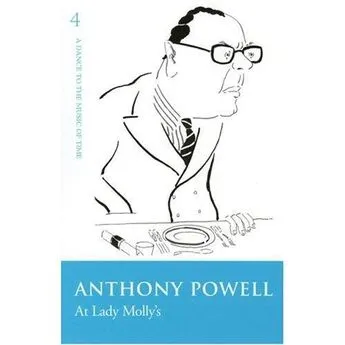Anthony Trollope - Autobiography of Anthony Trollope
- Название:Autobiography of Anthony Trollope
- Автор:
- Жанр:
- Издательство:неизвестно
- Год:неизвестен
- ISBN:нет данных
- Рейтинг:
- Избранное:Добавить в избранное
-
Отзывы:
-
Ваша оценка:
Anthony Trollope - Autobiography of Anthony Trollope краткое содержание
EBook of Autobiography of Anthony Trollope by Anthony Trollope (www.anthonytrollope.com)
Autobiography of Anthony Trollope - читать онлайн бесплатно ознакомительный отрывок
Интервал:
Закладка:
responsibility would rest on my head. I made this mistake, he
said,--that I supposed that a rate of travelling which would be
easy and secure in England could be attained with safety in Egypt.
"The Pasha, his master, would," he said, "no doubt accede to
any terms demanded by the British Post Office, so great was his
reverence for everything British. In that case he, Nubar, would at
once resign his position, and retire into obscurity. He would be
ruined; but the loss of life and bloodshed which would certainly
follow so rash an attempt should not be on his head." I smoked my
pipe, or rather his, and drank his coffee, with oriental quiescence
but British firmness. Every now and again, through three or four
visits, I renewed the expression of my opinion that the transit
could easily be made in twenty-four hours. At last he gave way,--and
astonished me by the cordiality of his greeting. There was no
longer any question of bloodshed or of resignation of office, and
he assured me, with energetic complaisance, that it should be his
care to see that the time was punctually kept. It was punctually
kept, and, I believe, is so still. I must confess, however, that my
persistency was not the result of any courage specially personal to
myself. While the matter was being debated, it had been whispered
to me that the Peninsular and Oriental Steamship Company had
conceived that forty-eight hours would suit the purposes of their
traffic better than twenty-four, and that, as they were the great
paymasters on the railway, the Minister of the Egyptian State,
who managed the railway, might probably wish to accommodate them.
I often wondered who originated that frightful picture of blood
and desolation. That it came from an English heart and an English
hand I was always sure.
From Egypt I visited the Holy Land, and on my way inspected the
Post Offices at Malta and Gibraltar. I could fill a volume with
true tales of my adventures. The Tales of All Countries have, most
of them, some foundation in such occurrences. There is one called
John Bull on the Guadalquivir, the chief incident in which occurred
to me and a friend of mine on our way up that river to Seville. We
both of us handled the gold ornaments of a man whom we believed to
be a bull-fighter, but who turned out to be a duke,--and a duke,
too, who could speak English! How gracious he was to us, and yet
how thoroughly he covered us with ridicule!
On my return home I received (pounds)400 from Messrs. Chapman & Hall for
Doctor Thorne, and agreed to sell them The Bertrams for the same sum.
This latter novel was written under very vagrant circumstances,--at
Alexandria, Malta, Gibraltar, Glasgow, then at sea, and at last
finished in Jamaica. Of my journey to the West Indies I will say
a few words presently, but I may as well speak of these two novels
here. Doctor Thorne has, I believe, been the most popular book that
I have written,--if I may take the sale as a proof of comparative
popularity. The Bertrams has had quite an opposite fortune. I do not
know that I have ever heard it well spoken of even by my friends,
and I cannot remember that there is any character in it that has
dwelt in the minds of novel-readers. I myself think that they are
of about equal merit, but that neither of them is good. They fall
away very much from The Three Clerks, both in pathos and humour.
There is no personage in either of them comparable to Chaffanbrass the
lawyer. The plot of Doctor Thorne is good, and I am led therefore
to suppose that a good plot,--which, to my own feeling, is the
most insignificant part of a tale,--is that which will most raise
it or most condemn it in the public judgment. The plots of Tom Jones
and of Ivanhoe are almost perfect, and they are probably the most
popular novels of the schools of the last and of this century; but
to me the delicacy of Amelia, and the rugged strength of Burley
and Meg Merrilies, say more for the power of those great novelists
than the gift of construction shown in the two works I have named.
A novel should give a picture of common life enlivened by humour
and sweetened by pathos. To make that picture worthy of attention,
the canvas should be crowded with real portraits, not of individuals
known to the world or to the author, but of created personages
impregnated with traits of character which are known. To my thinking,
the plot is but the vehicle for all this; and when you have the
vehicle without the passengers, a story of mystery in which the
agents never spring to life, you have but a wooden show. There must,
however, be a story. You must provide a vehicle of some sort. That
of The Bertrams was more than ordinarily bad; and as the book was
relieved by no special character, it failed. Its failure never
surprised me; but I have been surprised by the success of Doctor
Thorne.
At this time there was nothing in the success of the one or the
failure of the other to affect me very greatly. The immediate sale,
and the notices elicited from the critics, and the feeling which
had now come to me of a confident standing with the publishers, all
made me know that I had achieved my object. If I wrote a novel,
I could certainly sell it. And if I could publish three in two
years,--confining myself to half the fecundity of that terrible
author of whom the publisher in Paternoster Row had complained to
me,--I might add (pounds)600 a year to my official income. I was still
living in Ireland, and could keep a good house over my head, insure
my life, educate my two boys, and hunt perhaps twice a week, on (pounds)1400
a year. If more should come, it would be well;--but (pounds)600 a year I
was prepared to reckon as success. It had been slow in coming, but
was very pleasant when it came.
On my return from Egypt I was sent down to Scotland to revise the
Glasgow Post Office. I almost forget now what it was that I had
to do there, but I know that I walked all over the city with the
letter-carriers, going up to the top flats of the houses, as the
men would have declared me incompetent to judge the extent of their
labours had I not trudged every step with them. It was midsummer,
and wearier work I never performed. The men would grumble, and
then I would think how it would be with them if they had to go home
afterwards and write a love-scene. But the love-scenes written in
Glasgow, all belonging to The Bertrams, are not good.
Then in the autumn of that year, 1858, I was asked to go to the West
Indies, and cleanse the Augean stables of our Post Office system
there. Up to that time, and at that time, our Colonial Post Offices
generally were managed from home, and were subject to the British
Postmaster-General. Gentlemen were sent out from England to be
postmasters, surveyors, and what not; and as our West Indian islands
have never been regarded as being of themselves happily situated
for residence, the gentlemen so sent were sometimes more conspicuous
for want of income than for official zeal and ability. Hence the
stables had become Augean. I was also instructed to carry out in
some of the islands a plan for giving up this postal authority to
the island Governor, and in others to propose some such plan. I
was then to go on to Cuba, to make a postal treaty with the Spanish
authorities, and to Panama for the same purpose with the Government
of New Grenada. All this work I performed to my satisfaction, and
I hope to that of my masters in St. Martin's le Grand.
But the trip is at the present moment of importance to my subject,
as having enabled me to write that which, on the whole, I regard
as the best book that has come from my pen. It is short, and, I
think I may venture to say, amusing, useful, and true. As soon as
I had learned from the secretary at the General Post Office that
this journey would be required, I proposed the book to Messrs.
Chapman & Hall, demanding (pounds)250 for a single volume. The contract
was made without any difficulty, and when I returned home the work
was complete in my desk. I began it on board the ship in which I
left Kingston, Jamaica, for Cuba,--and from week to week I carried
it on as I went. From Cuba I made my way to St. Thomas, and through
the island down to Demerara, then back to St. Thomas,--which is
the starting-point for all places in that part of the globe,--to
Santa Martha, Carthagena, Aspinwall, over the Isthmus to Panama, up
the Pacific to a little harbour on the coast of Costa Rica, thence
across Central America, through Costa Rica, and down the Nicaragua
river to the Mosquito coast, and after that home by Bermuda and New
York. Should any one want further details of the voyage, are they
not written in my book? The fact memorable to me now is that I
never made a single note while writing or preparing it. Preparation,
indeed, there was none. The descriptions and opinions came hot
on to the paper from their causes. I will not say that this is the
best way of writing a book intended to give accurate information.
But it is the best way of producing to the eye of the reader, and
to his ear, that which the eye of the writer has seen and his ear
heard. There are two kinds of confidence which a reader may have
in his author,--which two kinds the reader who wishes to use his
reading well should carefully discriminate. There is a confidence
in facts and a confidence in vision. The one man tells you accurately
what has been. The other suggests to you what may, or perhaps what
must have been, or what ought to have been. The former require simple
faith. The latter calls upon you to judge for yourself, and form
your own conclusions. The former does not intend to be prescient,
nor the latter accurate. Research is the weapon used by the former;
observation by the latter. Either may be false,--wilfully false; as
also may either be steadfastly true. As to that, the reader must
judge for himself. But the man who writes currente calamo, who
works with a rapidity which will not admit of accuracy, may be as
true, and in one sense as trustworthy, as he who bases every word
upon a rock of facts. I have written very much as I have, travelled
about; and though I have been very inaccurate, I have always
written the exact truth as I saw it ;--and I have, I think, drawn
my pictures correctly.
The view I took of the relative position in the West Indies
of black men and white men was the view of the Times newspaper at
that period; and there appeared three articles in that journal, one
closely after another, which made the fortune of the book. Had it
been very bad, I suppose its fortune could not have been made for
it even by the Times newspaper. I afterwards became acquainted with
the writer of those articles, the contributor himself informing me
that he had written them. I told him that he had done me a greater
service than can often be done by one man to another, but that I was
under no obligation to him. I do not think that he saw the matter
quite in the same light.
I am aware that by that criticism I was much raised in my position
Читать дальшеИнтервал:
Закладка:








